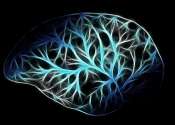Timing of brain cell death uncovers a new target for Alzheimer's treatment
Alzheimer's remains the leading cause of dementia in Western societies, with some estimates suggesting that as many as 24 million people worldwide are living with the disease. Alzheimer's is characterized by a progressive ...
Feb 13, 2020
0
10








